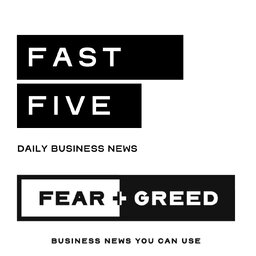Fast Five | 11 Apr 2025
Friday 11 April 2025
The top five business stories in five minutes, with Sean Aylmer and Michael Thompson.
- ASX soars on Trump backdown
- Coalition’s $20b regional fund
- Virgin passenger refunds
- Aussies urged to check passwords
- Meta whistleblower unloads
Join our free daily newsletter here!
And don’t miss the latest episode of How Do They Afford That? - 10 digital side hustles. Get the episode from APPLE, SPOTIFY, or anywhere you listen to podcasts.
 Fast Five by Fear and Greed
Fast Five by Fear and Greed


